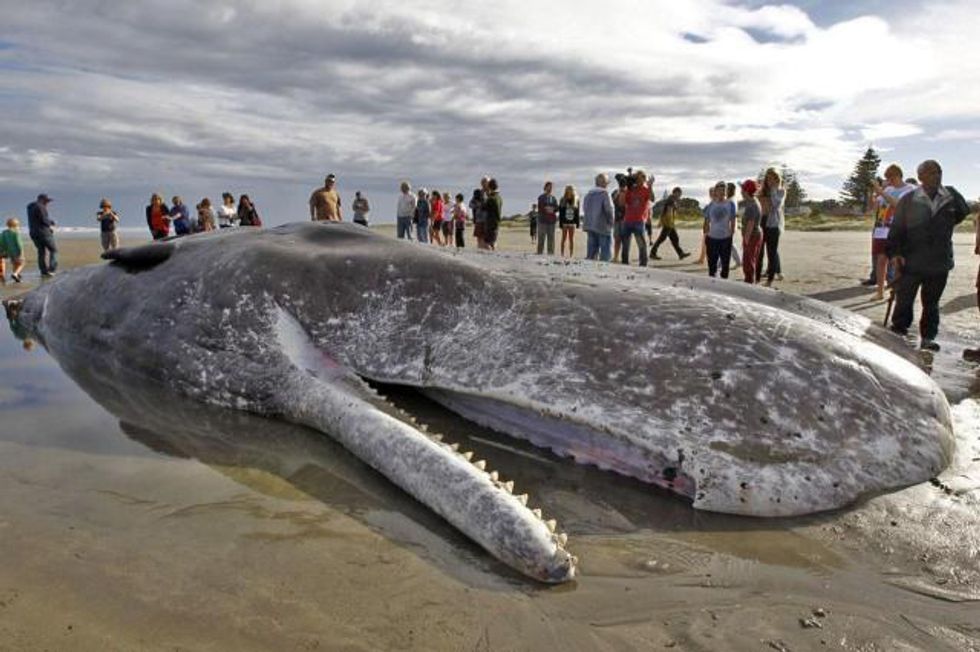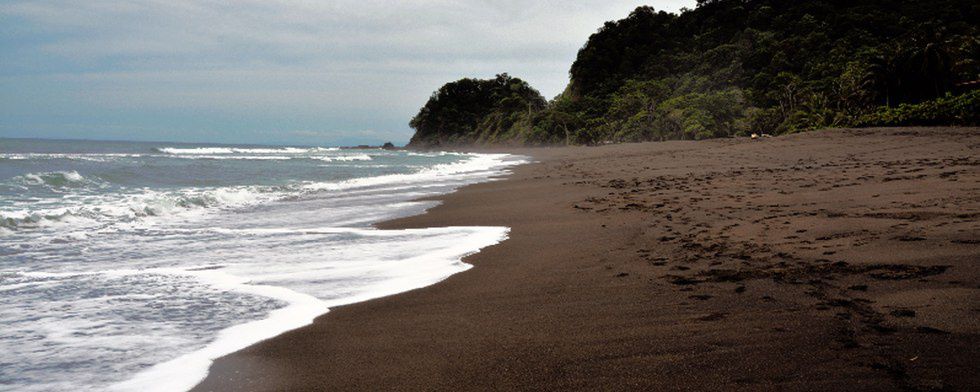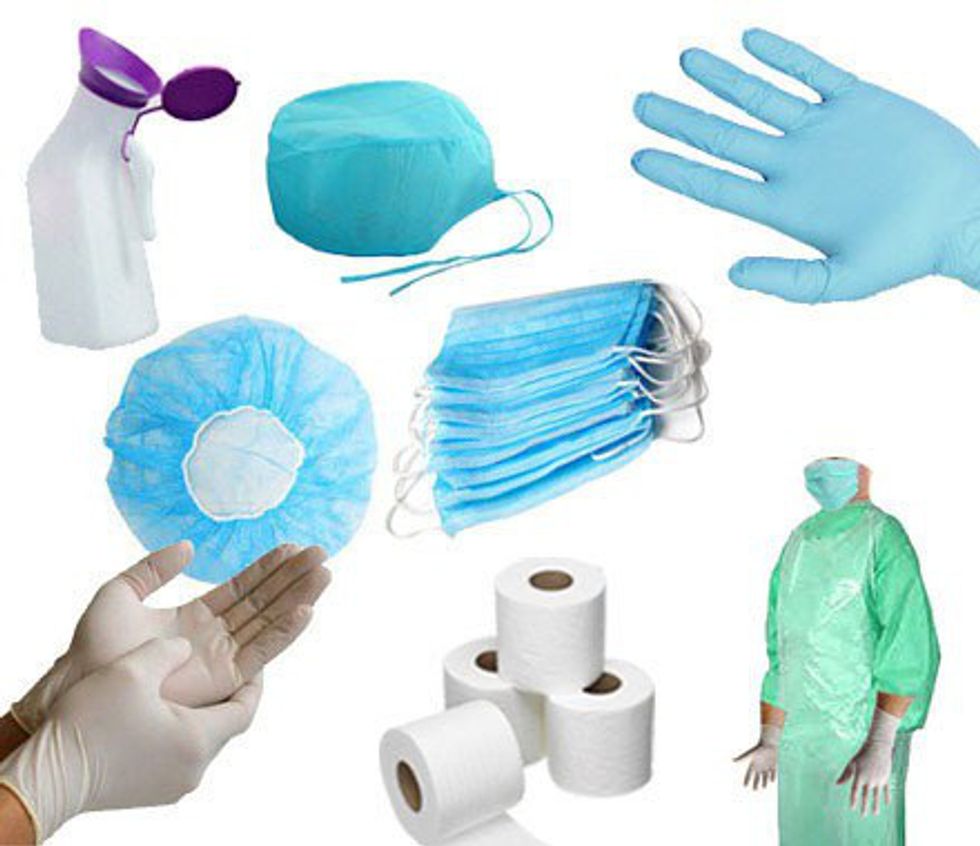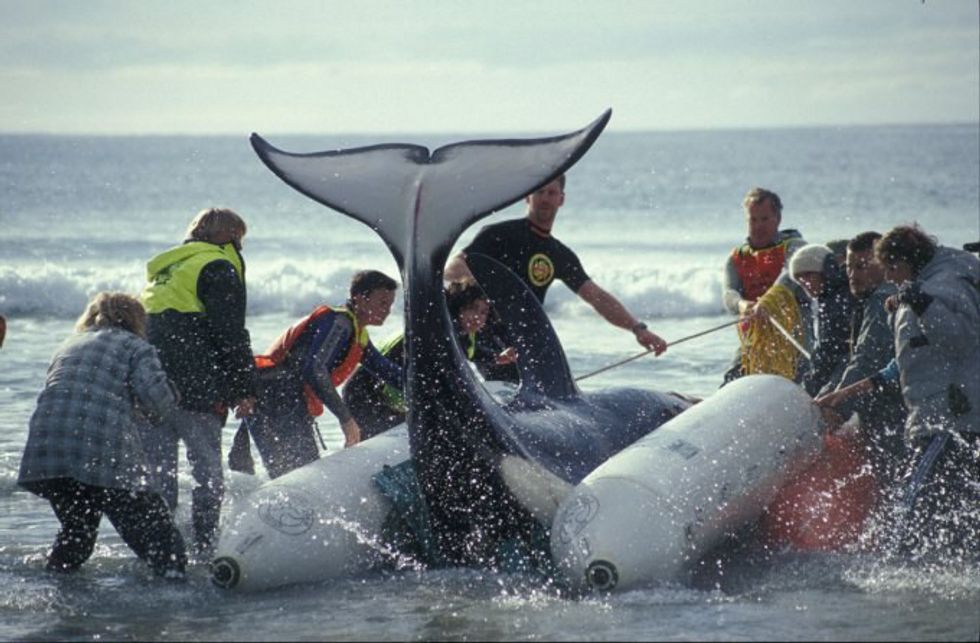There are times that people take things thing for granted, It could be anything really, from the little things to even bigger things, But I know one subject that is taken for granted especially around summer time, And that my friend is the well being of aquatic life! Think about it.
Sooner or later it'll be summertime and you know what that means: Going to the beach, Then it's all fun and games until you stumble upon a animal that's been beached. To others they have a good heart and want to help the animal out, While some people thinks it sounds like tons fun, while you notice that there's a beached mammal of the sea that's gasping for air and people are trying to smother the poor creature, And your natural reaction is to want to touch the animal, It may sound like a fun or helpful idea for you but it is definitively not for the creature!
🌊How do they become beached?🌊
There has been many theories to this case.
- For dolphins and whales they could be following a very old and confused member of their pod which leads them to becoming lost.
- Climate change
- The echolocation could be misleading them to the wrong direction
- They could have been startled but a boat motor, because to the animal (specifically the whales) the sound of the motor sounds very familiar to a whale call but it doesn't sound natural which frightens them and their natural instinct is to swim away.
This is a very serious issue for many aquatic mammals from Dolphins, Whales, Seals, Sea Lions, Sharks and many more. (Sharks are technically not marine mammals but they sometimes end up being beached as well.) They are fascinating beauties of the big blue, but instead of reaching out to touch a beached marine animal why don't you take time and realize what could happen in this situation.
🌊You could get hurt and sick🌊
A lot of people forget that marine mammals are wild animals and most likely will carry diseases which are transferable to humans, and they can cause injury by thrashing their tails, biting and scratching if they feel threatened. This will not only hurt you, but this is also how you can become sick!
One of the most common illnesses is brucellosis, which affects the reproductive and nervous systems of any marine mammal and can be transmitted to humans through contact with most of the marine mammal's secretions. Tuberculosis and leptospirosis are two other harmful diseases that affects lungs and other problems in the inner organs.
🌊You could end up hurting the animal🌊
If you manage to touch the mammal anyways the chances of animal surviving will be slim, Most likely the marine mammal will be dehydrated from the lack of being out of water for a long period of time and frightened which could lead to death. Wouldn't you be scared to death if some stranger was suddenly touching and grabbing you?
🌊Do's and Don'ts 🌊
The very first thing you should if you have a good heart and actually want to help your beached friend is to call the experts! It can be anyone with the proper experience with animal and medical experience like a lifeguard, a vet, animal control, a marine biologist or zoologist . And wait for them to arrive. In the UK use these numbers to call for help (and for reporting a dead animal). But if you live in the US then you should call WDC's North American office, (To report a stranding tel. 508 743 9548) New England Aquarium, (The 24 hour hotline 617 973 5247.) If no one answers make sure you leave a message, be sure to include very specific directions as well as your name and phone number so they can call you back if they have questions.
Keeping a safe distance away from the animal is also helpful. Trying to keep other people (specifically children), dogs, and seagulls away is also very good. However while you are waiting for them to arrive here are a couple of suggestions if you are starting to panic.
For Beached Dolphins and Whales:
- Approach the animal at a safe distance of five meters (15 feet) and always from in front. Avoid getting near the tail and fins. Make sure that the dolphin is alive through observation of breathing (dolphins can breathe every 3 to 5 minutes). But keep in mind before approaching them they could be strand feeding which is when the dolphin or whale (mostly killer whales do this) come up on land and wait until the waves out out into shore and wait for the fishes swim into there mouths.
- Avoid touching the dolphin and if necessary, use gloves and a mask or scarf to cover your mouth and nose.
- If the animal is alive and you decide to return it to the sea, you should lift it with at least four people (always with gloves and with experienced marine biologist or zoologist). Do not drag or pull the dolphin or whale by its tail or fins back into the water, since this could mistreat it or a serious injury Just try to return it to the sea at once. If the dolphin leaves the water again, please leave it to the experts, They know what they are doing.
- Do not attempt to move heavy whales and dolphins without adequate and expert assistance and always wash your hands thoroughly after contact.
- Calmly approach to make sure the blowhole (through which the whale or dolphin breaths) is not blocked or underwater. If you can find someone adequate assistance and you are confident in what you are doing it may be helpful to gently roll the individual onto their front (belly), so that the blowhole is facing upwards (whales and dolphins often strand on their sides) and it is helpful to keep their skins wet with water. However, do not at any point pull on its fins or tail and be very careful not to get water down the blowhole. Also keep in mind that whales have two blow holes while dolphins have one.
- If you approach a narwhal keep in mind to use the same guidelines, also keep in mind the male narwhals are not really violate with their tusk, it's mostly used to show comparisons sizes and for defense, They rarely attack but keeping a safe distance is recommended.
- Do not a do something horrific like this or this or this ( if you think these wonder animals deserve justice you can sign this petition )
For seals and sea lions:
Seals and Sea lions have similar considerations. Keeping a safe distance away from the animal is also helpful. Trying to keep other people (specifically children), dogs, and seagulls away and wash your hands after contact. And calling the suggested phone numbers. But before you do anything keep in mind seals regularly come out of the sea to rest on the shore and pups are often left alone by their mothers. So, a pup seen on its own can be a perfectly natural occurrence. Adults and pups hauled-out on shore can safely be watched from a distance, but if you approach too closely, the mother may be scared off and abandon the pup. So here's what you should do if you think a seal or sea lion is sick, injured or abandoned .
- Observe the animal from a distance of at least 100 yards. If the animal notices you, you’re too close you should slowly move further.
- Take a mental note on the animal’s physical characteristics such as size and coloration. This helps the experts determine the species and what resources may be needed. Take photos if possible, remembering to stay at least 100 yards away.
- Notice the animal’s condition. Dose it seem weak? Thin? Are there any open wounds? Or dose animal has any identification tags or markings. If so immediately inform the experienced assistance.
- Do not touch, pick up, or feed the animal, or try to put them back into the water, there could be a chance the mother or another companion is nearby.
- You can educate yourself with websites like this one or this one
- You can help more animals that are in danger by signing petitions like this one or this one or this one
- You can donate to WWF to help these fresh water seals
- You can help by recycling and making sure all the unnecessary plastic is gone. For example: soda cases, plastic shopping bags, plastic cups,water bottles and plastic straws. Plastic is very harmful towards the animals. Plastic could suffocate the dolphins and whales by covering up their blowholes, Plastic could get caught around their tails and cut off blood circulation and even worse they could eat it, This actually happened to a killer whale and since there was so much plastic in it's body the carcass was considered to be a bio-hazard. (Here's a similar story) A way that you can help is to use non-plastic cups like mugs, use a tote bag or some other type of bag instead of a plastic shopping bag, don't use plastic straws, use reusable water bottles.
I hope this helps you understand a little bit more about marine mammals. Hopefully you won't end up seeing a majestic creature in pain due to becoming beached or something much worse because that is one sight that'll be hard to forget. If you really want to help them then you are a whale-of a good person.































